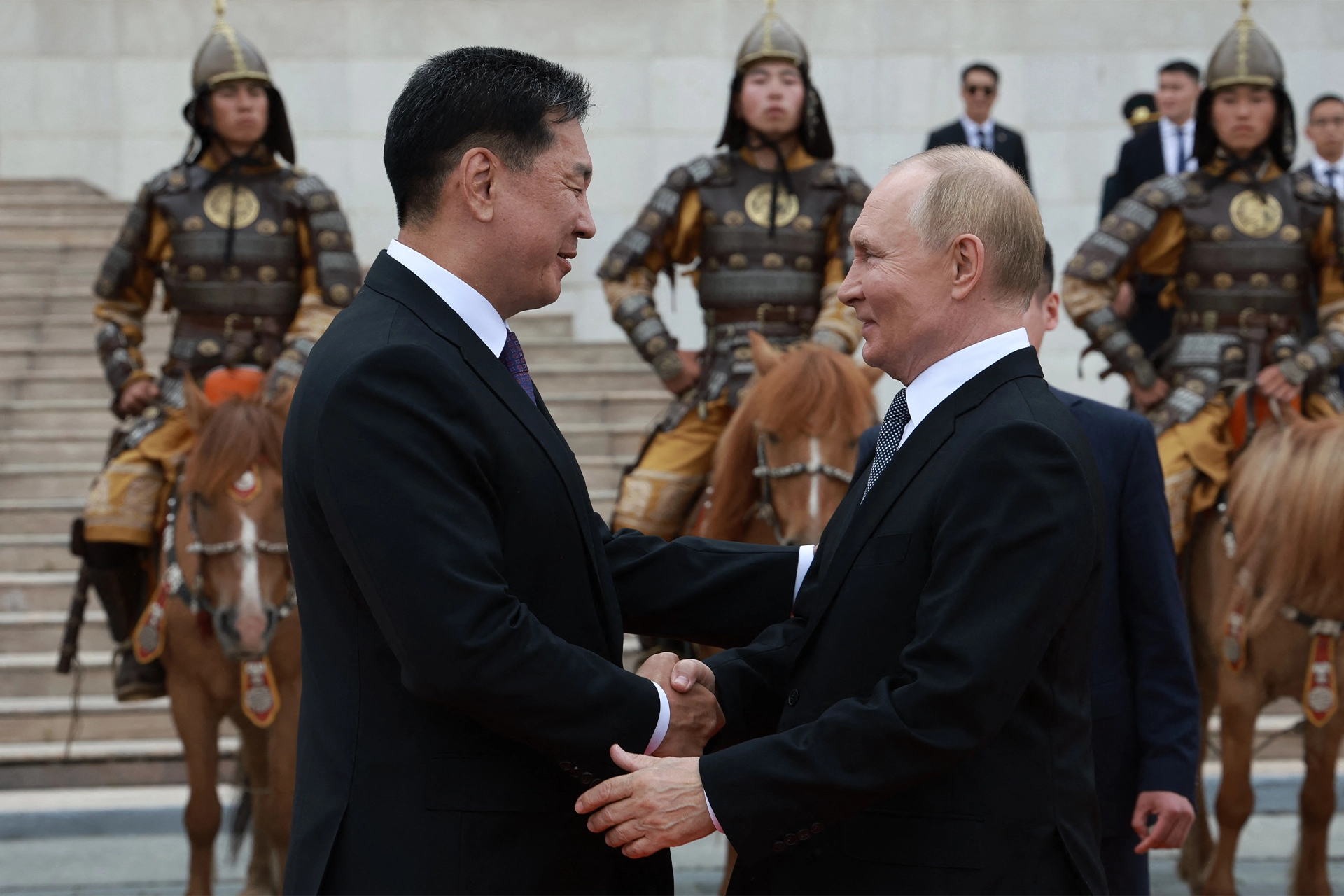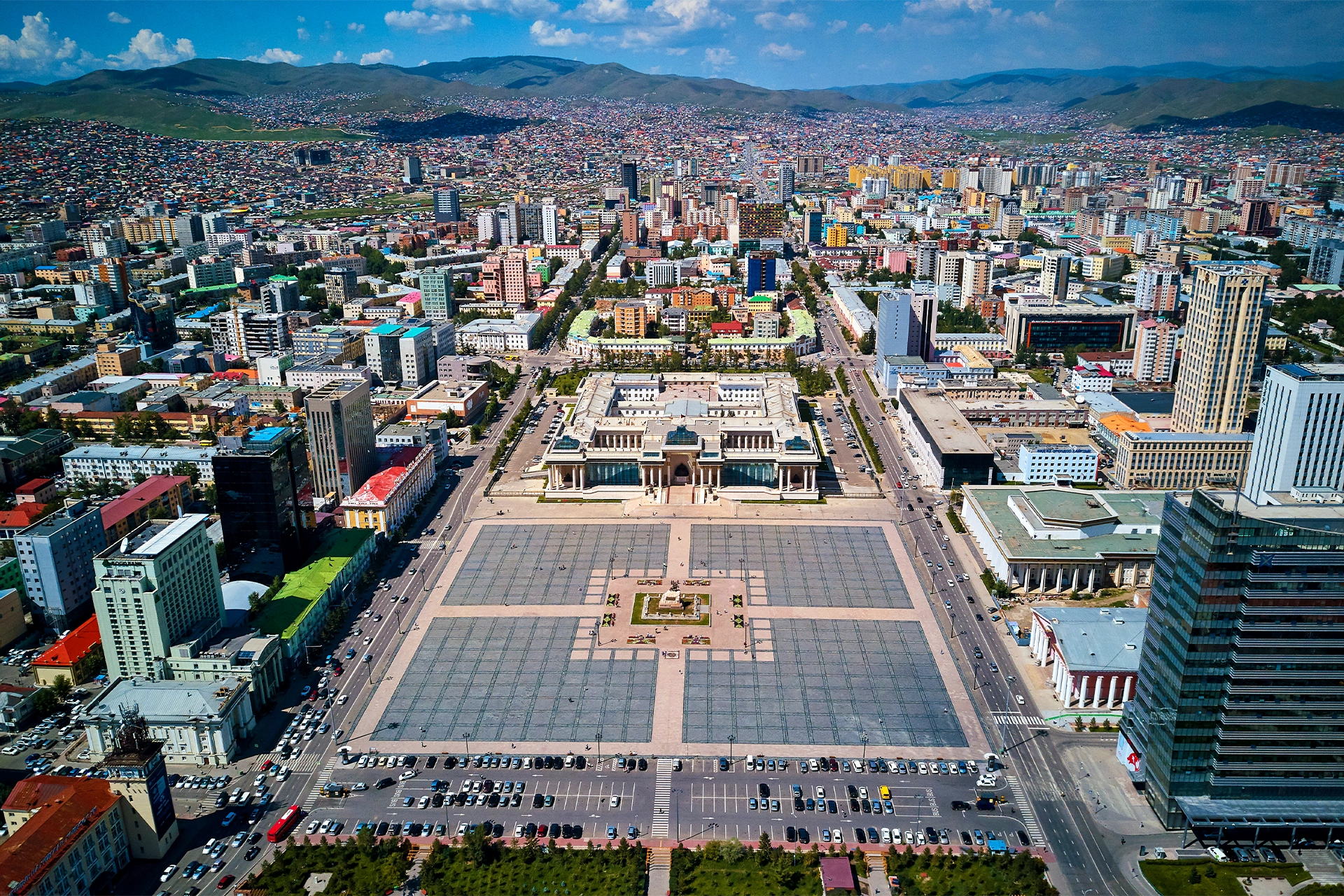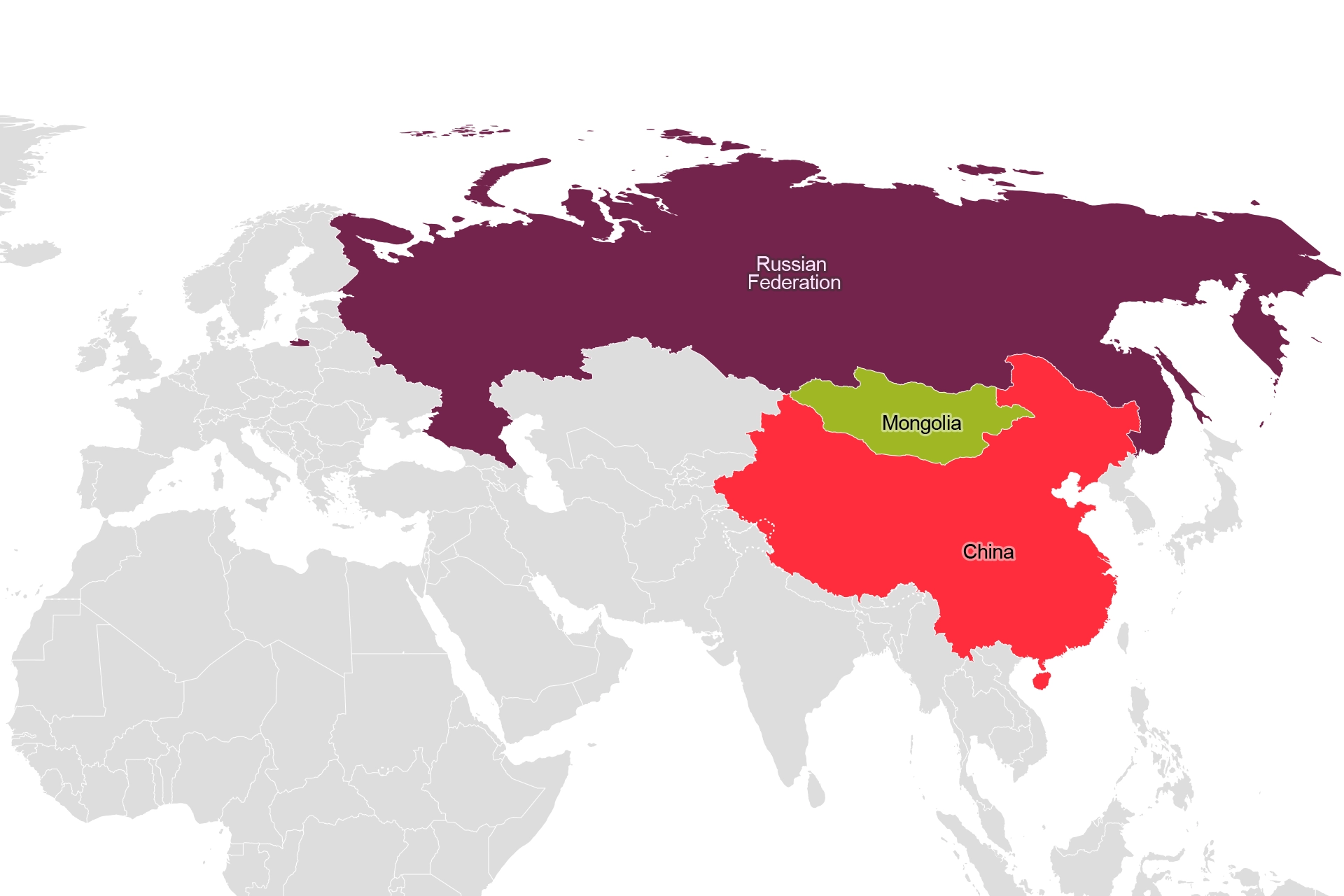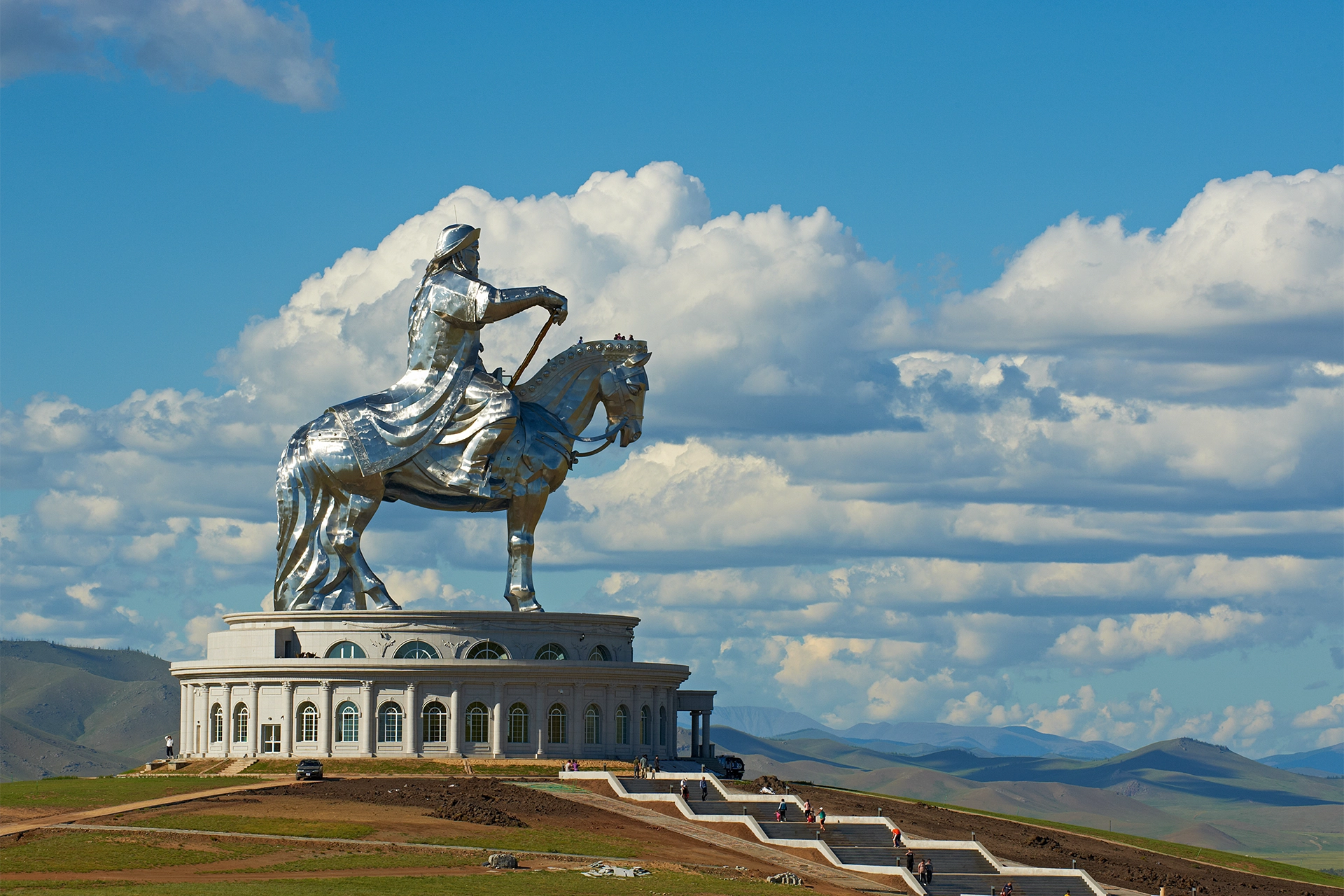
Mongolia’s decision not to arrest Putin was no surprise

Mongolia’s recent decision not to enact an ICC-issued arrest warrant for the Russian president reflects its attempts to maintain independence, sandwiched between two superpowers
Published 18 October 2024
The International Criminal Court (ICC) has an active arrest warrant for Russian President Vladimir Putin, who is accused of allegedly committing the unlawful deportation of Ukrainian children.
Mongolia is a member country of the ICC, yet when President Putin visited Mongolia on 3 September 2024 he was not arrested.

This decision received international attention and condemnation by Ukraine.
An arrest by Mongolia, however, would have jeopardised Mongolia’s delicately negotiated independence. The reverberation of this continued negotiation is felt by many Mongolians as they continue to understand their place within their country and the world.
To many within the country, and those familiar with Mongolia’s position, the decision to not arrest Putin makes sense and was not a surprise.
Energy, diplomacy and history
Mongolia has a relatively small population of 3.4 million people and a vast territory rich in minerals including gold, copper and coal.
In 1990 Mongolia made a peaceful switch from socialism to a democratic market economy.
A distinct country with sovereign borders (and not to be confused with the region of Inner Mongolia in China), Mongolia’s independence is something that nonetheless needs to be continuously negotiated and maintained on different economic, political and infrastructural scales.

It is often described as a ‘buffer state’ for its location between the two powers Russia and China, and has a long history of cultivating neutrality as a way of maintaining relationships with both countries and maintaining its own sovereignty.
For example, in 2019 Mongolia and Russia signed a treaty signifying Friendly Relations and a Strategic Partnership between the two countries, following similar treaties signed in 1993 and 2009.
Putin’s recent visit coincided with the fifth anniversary of this signing – arresting him on such an occasion would be seen as neither ‘friendly’ nor ‘strategic’.
This buffer state role has taken on further significance with Russia and China’s growing ‘friendship’, including the 2022 signing of a 30 year contract for Russia to supply gas to China. Mongolia is also further dependent on Russia as it receives 95 per cent of its petroleum products from its northern neighbour.
Since its switch to democracy, Mongolia has bolstered its independence through carefully cultivated relationships with ‘third-neighbour’ countries including the USA, UK and Australia.
Mongolia has also received considerable support and loans from the World Bank and International Monetary Fund (IMF).

Economic flux and Mongolia’s independence
While international commentators questioned Mongolia’s decision not to arrest Putin, looking at Mongolia’s recent economic and political fluctuations in the context of their position as a buffer state gives insight into lived experiences in the country and how this would have influenced Mongolia’s decision.
In 2010-11, Mongolia experienced a considerable rise in GDP fuelled by speculation-driven growth in investment in its mining sector. Buoyed by this growth, Mongolia acquired its first sovereign bond, nicknamed the ‘Chinggis Bond’ (named after the most famous Mongolian in history, Chinggis Khaan, also known as Genghis Khan), which garnered US$1.5 billion.
However, investment and the growth of Mongolia’s economy stalled after a slowdown of China’s economy and the global commodity cycle post 2013.
Mongolia was unable to pay back its bond debt and took out further loans from the IMF in 2017, which brought with it an increased influence of the IMF over the country’s economy.
Among Mongolians, this failure of economic growth led to a perceived gap between the future they hoped for and the reality of further reliance on international finance institutions, personal and public indebtedness and increased inequality.

Health & Medicine
Making surgery safe in Mongolia
Mongolia’s capitalist economy is crucial to it maintaining political sovereignty and independence, with democracy and capitalism seen in Mongolia as two sides to the same, often problematic, coin.
Its post-2013 economic slowdown once again resulted in Mongolia’s hard-won economic independence becoming more precarious.
Sovereignty and lived experience
These economic and political machinations that likely motivated in part Mongolia’s decision not to arrest Putin don’t just exist in the world of national level politics and economy.
They are felt by different sections of the population on multiple, daily and incremental scales. Paying attention to these everyday experiences reveals attempts to mark out sovereignty within people’s everyday lives.
This can be seen in beliefs that taking out mortgages will help keep Mongolia’s economy on the ‘right course’.
Worries about economics simultaneously become worries over loss of a form of independence, as seen when Mongolian’s decry their country’s amount of foreign debt.

It’s also seen in urban residents expressing belief in the right of Mongolian citizens to own land in urban areas.
Relating to these concerns is the fact that Mongolia has been beset by multiple corruption scandals.
In just one example, significant public protests broke out in December 2022 over allegedly underhanded coal sales to China by Mongolia’s state-owned company Erdenes Tavan Tolgoi.
While the protests were explicitly motivated by speculation over possible government corruption, this situation also alluded to wider public anxieties over Mongolia’s potentially ‘porous’ borders and the economic and political influence of China.
Independence is thus not something many Mongolians take for granted but is instead felt as something that needs to be articulated and evoked in the everyday.

Arts & Culture
Preserving China’s minority languages
Reflecting on international geopolitical relationships amid current events
Some Mongolians are sceptical of the role of Russia in this continual articulation of independence.
Protest arose in Mongolia over Putin’s recent visit, and Russia’s war with Ukraine has caused some Mongolians to question their country’s loyalties with Russia.
Mongolia’s careful negotiations as a buffer state reveals the extent to which striving for independence is felt on individual, personal scales.
As we continue to watch Russia and China’s power and influence grow, Mongolia’s experience demonstrates how this geopolitical shifting is shaping lives in the broader region.
The banner image shows Russia’s President Vladimir Putin and Mongolia’s President Ukhnaagiin Khürelsükh shaking hands during an official welcoming ceremony in Ulaanbaatar on September 3, 2024
